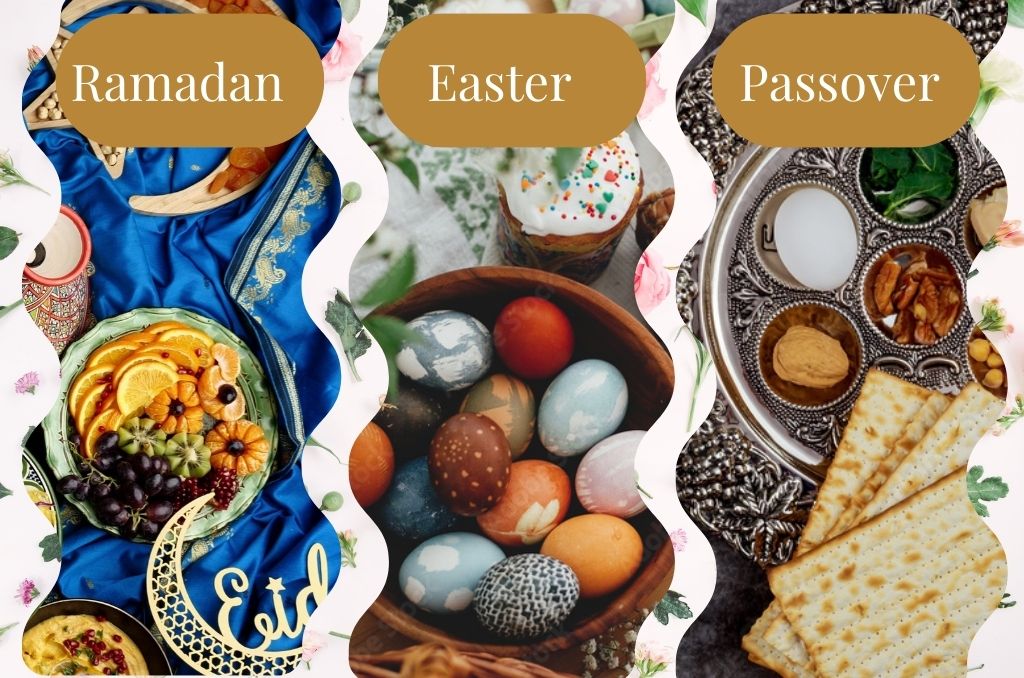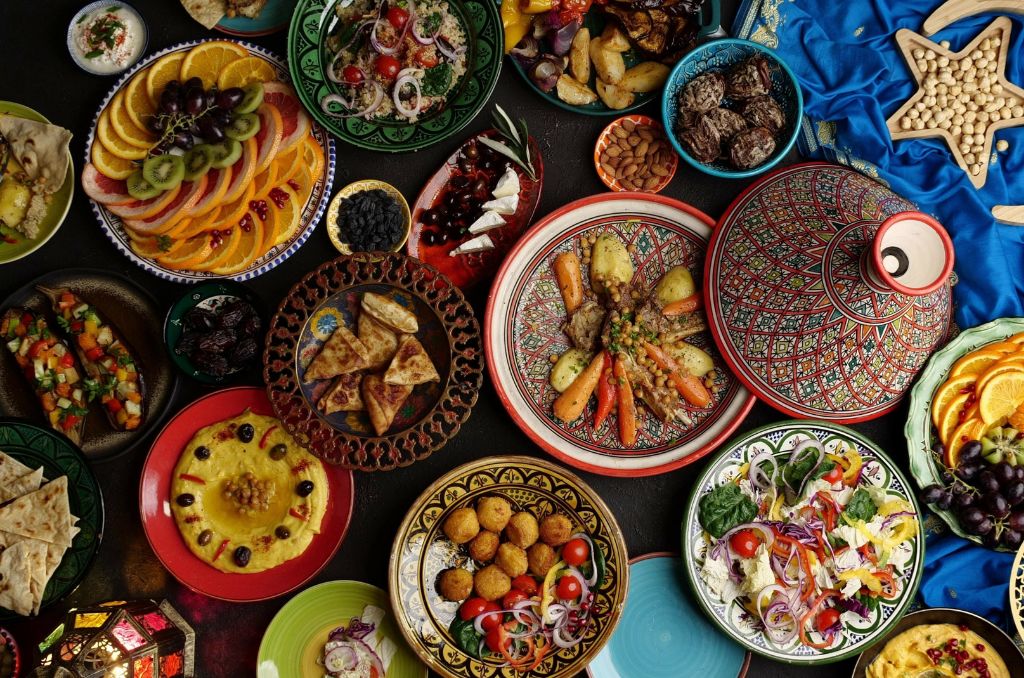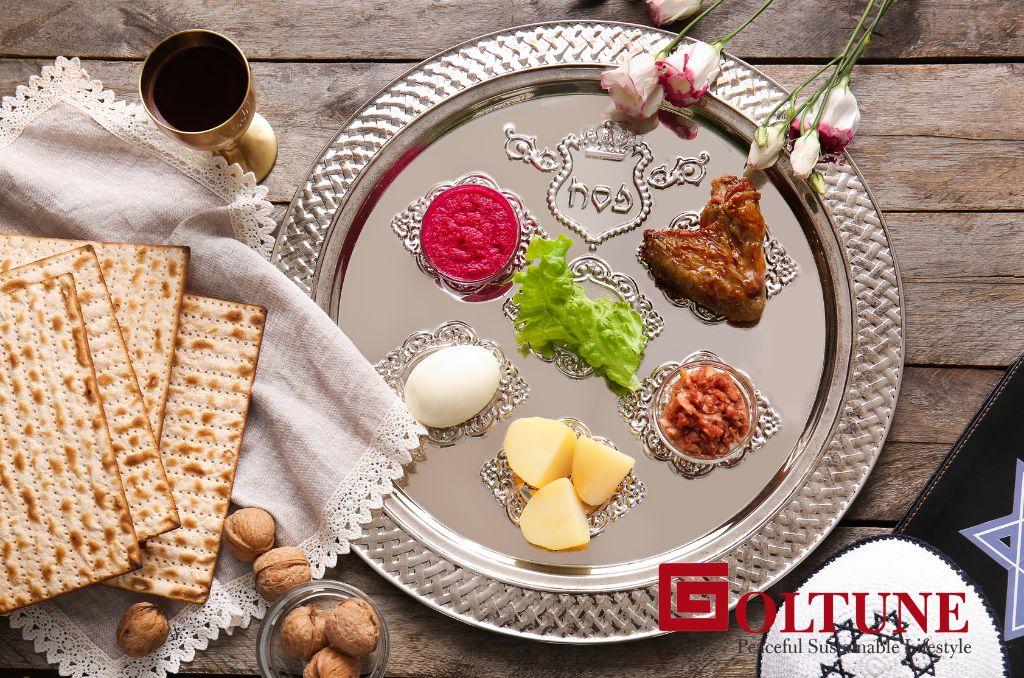
Many people will be celebrating religious holidays this weekend as a rare crossover of Easter, Passover and Ramadan will occur, which only happens about every 33 years.
Muslims are observing Ramadan, a holy month focused on fasting, prayer, reflection and community. The last ten days of Ramadan is called Layl al-Qadr, which Muslims believe the Quran was revealed to the Prophet Mohammad. The fist night of Layl al-Qadr falls on this Sunday.
Christians worldwide are celebrating Holy Week, which includes Palm Holy Thursday, Good Friday, Holy Saturday and Easter Sunday. Easter commemorates the death and resurrection of Jesus Christ.
Passover began on Wednesday and Jews are celebrating the biblical story of a mass exodus from slavery in Egypt and their protection — their supernatural and divine protection during that time.
Ramadan and Layl al-Qadr
When is Layl al-Qadr in 2023?
Layl al-Qadr is an Islamic observance that marks the anniversary of the night Mohammad received the first verses of the Qu’ran. It goes by many names in English and these names include The Night of Measures, Night of Power, Night of Decree and Night of Destiny. It is also known as Shab-e-Qadr. In many Islamic countries, this day is observed on one of the odd nights of the last nights of Ramadan – which is the 19th, 21st, 23rd, 25th or 27th. In the United States, it is held during one of the last ten days of Ramadan. The first night of Layla al-Qadr is Sunday, April 9th.
History of Layl al-Qadr
The Prophet Mohammad spent many years contemplating the world around him and looking for divine help so he could lead his people away from immorality and idolatry. He often traveled into the hills near Mecca and lived in the Cave of Hira for several days every year.
Muslims believe that around 610 CE, God whispered the first verses of the Quran to him. It is on the anniversary of this date that Layl al-Qadr is observed. However, it is unknown the exact day in which the Prophet received the message from God, all that is known is that is observed during the last ten days of Ramadan.
 Layl al-Qadr Customs & Traditions
Layl al-Qadr Customs & Traditions
As is customary through Ramadan, many Muslims will fast and will abstain from sexual relations during daylight hours on this day. Muslims will also make an extra effort to read the Quran and to ask for forgiveness during this time.
For many Muslims, the last 10 days of Ramadan is seen as a period of time when blessings abound and prayers are answered. It is also customary for many Muslims to spend a considerable amount of time in the Mosque on this day.
It is also a time when the community comes together for communal worship, prayers and celebrations of God and the Prophet Mohammad. It is also a time for people to do acts of good will or charity – particularly, towards the poor and unfortunate.
Layl al-Qadr Rewards
Muslims believe that on the nights of Layl al-Qadr, a single act of kindness gives the blessings of 1,000 months. Carrying out good deeds on the Holiest nights and dedicating their day to worship will extend their taqwa, or blessings.
“We have indeed revealed this in the ‘Night of Power’. And what will explain to you what the night of power is? The Night of Power is better than a thousand months. Therein come down The Angels and the Spirit by Allah’s permission, on every errand. “Peace!…This until the rise of Morn!” – Surah Al-Qadr
 Iftars in Ramadan
Iftars in Ramadan
Iftars are always upbeat – everyone is relieved to eat and drink after a long day of fasting and after the dates have been passed around, people will sit down to all kinds of delicious dishes. Typical dishes include halal meats (chicken and mutton are always popular), fresh fruits and vegetables. Deserts are always fun – expect to find milk puddings (flavoured with saffron and pistachio), baklava and halva on the table, all to be washed down with Arabic coffee and mint tea.
Passover
What is Passover?
Passover (or ‘Pesach’ in Hebrew) commemorates the ancient Biblical story of the Israelites fleeing the wicked Pharaoh of Egypt, who had kept them in bondage and misery and only agreed to free them after God sent ten plagues to the land. Led by Moses, the Jews arrived at the Red Sea and, with the help of a miracle, the waves parted and their release was secured, after which the waters came together once more and drowned the Egyptian armies pursuing them.
When is Passover 2023?
Passover is celebrated in 2023 from the evening of Wednesday, April 5th until the evening of Wednesday, April 12th.
Why is it called Passover?
The tenth of the plagues God sent to Egypt involved the killing of the firstborn son in every home – including the Pharoah’s own child. How did God know to omit the Jews from this plague? Because God told them to each family to sacrifice a lamb and with its blood, mark their front door with its blood. As a result, God ‘passed over’ the homes of the Jews and they were spared.
 Seder Night 2023
Seder Night 2023
The most famous tradition at Passover is not to eat leavened bread (‘chametz’) for eight days, commemorating the fact that the Israelites left Egypt in such haste that their bread had no time to rise.
Orthodox Jews will clean their homes thoroughly before the holiday, removing all bread, flour, cookies, etc. and using separate plates and cutlery for the duration.
On the eve of Passover, millions of Israelis (and Jews across the world) gather together for a seder meal. ‘Seder’ in Hebrew means ‘order’ and this represents a ritual and an ‘order’ to the evening that stretches back thousands of years.
Families read from a special book called the ‘Haggadah’, sing ancient songs, drink four glasses of wine as they read and then sit down to a festive meal with matzah (unleavened bread).
It’s one of the most beloved holidays and one in which almost all Israeli Jews partake in, however religious or secular they are. If you want to take part in one, contact a local synagogue may be able to put you in touch with a host or look on social media – there are always families who will open their doors to you – in fact, is it a commandment to ‘welcome the stranger’ on Passover.
Easter or Good Friday
What is Easter or Good Friday?
Good Friday is the day in which Christian and Catholic churches commemorate the crucifixion and death of Jesus Christ.
The crucifixion of Jesus Christ at the site of Calvary is commemorated on Good Friday — a Christian religious holiday. Taking place during Holy Week, the holiday is considered part of the Paschal Triduum on the Friday before Easter Sunday. The day is also widely known as Great Friday, Black Friday, or Holy Friday. Around the world, Good Friday is a national holiday in many countries, especially in the Catholic and Anglican nations. Fasting is the traditional way to observe this solemn day, followed by somber processions.
The exact origins of Good Friday are unknown, but the celebration dates back to the 4th century. Fasting and putting limitations on oneself to mourn the death of Jesus is an ancient practice. Why the holiday is called Good Friday is also unknown, but there are several theories.
Why is it called Good Friday?
Some believe that ‘God’s Friday’ evolved to ‘Good Friday,’ while religious devout firmly believe that the day is named ‘good’ as a symbol of Jesus and everything he stood for against evil-doers. It is also widely believed that Jesus died on a Friday, but this doesn’t explain the addition of ‘good’ to the holiday.
Jesus sacrificed his life out of love for his believers and all mankind. His death was the ultimate sacrifice. Despite it being a terrible day in history, the event paved the way for mankind’s salvation, with Jesus being resurrected two days later.
When is Easter or Good Friday in 2023?
Good Friday to Easter Sunday this year falls between the 7th and 9th of April, commemorates the period between Jesus arriving in Jerusalem, then being arrested, tried and crucified then finally resurrected.
How is Good Friday observed?
Despite its name, Good Friday is a day for somber reflection. Each Friday before Easter, Christians solemnly honor the way Jesus suffered and died for their sins. They might attend a service that recounts Jesus’s painful crucifixion, and some even refrain from eating to show their sorrow.
Please Pledge to Our Independent Peace Journalism.
Goltune is editorially independent. We set our agenda. No one edits our editors. No one steers our opinion. This is important as it enables us to stay true to our values.
Every contribution we receive from readers like you, big or small, goes directly into funding our journalism. Please support Goltune, large or small. Thank you.
Send your contributions to our PayPal account: [email protected]
Or, contact us and let us know what we can do to deserve your support.








 Layl al-Qadr Customs & Traditions
Layl al-Qadr Customs & Traditions Iftars in Ramadan
Iftars in Ramadan
 Seder Night 2023
Seder Night 2023 